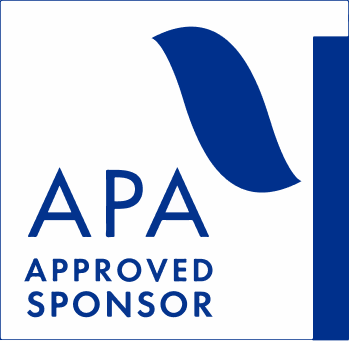Level 2
Application Series
Faculty

Dr. Omar Minwalla
Psy. D.
Licensed Psychologist & Clinical Sexologist
Dr. Omar Minwalla is a Licensed Psychologist and Clinical Sexologist trained at … Read More
Level 2: Application Series
Understanding the Psychological Abuse, Victimization, and Trauma associated with Infidelity and Compulsive Sexual Behavior
This course introduces professionals to the basic clinical tools and methods used to assess, diagnosis and treat patients seeking help for deceptive sexuality, meaning infidelity, compulsive sexual behavior, psychological abuse disorder and trauma and stressor-related disorders. Professionals will learn how to conduct a structured assessment, make appropriate diagnosis using the Diagnostic and Statistical Manual-V, and how to design an initial treatment plan for the abuser, the victim, and the injured relationship(s) as well, in a comprehensive and coordinated systemic model of intervention. The course also helps professionals with crisis management, how to stabilize the abuse and traumatic symptoms, and the role of targeted psychoeducation in treatment. The course helps professionals learn techniques and processes that facilitate clinical metabolization, post-traumatic growth and integration, and the role of individual, group, and couples work when addressing infidelity, compulsive sexual behavior, psychological abuse disorder and trauma and stressor-related disorders.
Module 3
Credits: 14 CE
Treating the Abuser of Psychological Abuse, Infidelity and Compulsive Sexual Behavior Disorder
This course reviews practice guidelines when working with abusers of intimate partner psychological abuse associated with infidelity and compulsive sexual behavior. Professionals will learn how to utilize a structured assessment for psychological abuse and for problematic sexual behavior, including compulsive sexual behavior disorder and how to appropriately diagnose the psychological abuse disorder related to infidelity and compulsive sexual behavior. The course will help professionals learn how to create a cognitive-behavioral treatment plan to reduce abusive behaviors. Gender-sensitive programming for men, group psychotherapy and specialized psychoeducation for male abusers that promotes clinical stabilization and other treatment strategies will be discussed. Professionals will learn to help men clinically recognize and address the psychological abuse disorder associated with infidelity or sexual problems. Finally, a critical analysis and discussion of treatment approaches for infidelity, psychological abuse, and compulsive sexual behavior are reviewed and placed in a context of gender-based violence prevention, the bystander approach, and social justice.
Day 1: Assessment, Diagnosis, and Treatment Stabilization of Abusers with Psychological Abuse Disorder, Infidelity and Compulsive Sexual Behavior Disorder
Learning Objectives: At the completion of the program, participants will be able to:
- Conduct a structured assessment for the compulsive sexual behaviors or problematic sexual-relational behaviors.
- Conduct a structured assessment for the abuse-related behaviors associated with psychological abuse disorder, infidelity, and compulsive sexual behavior disorder.
- Use the Diagnostic and Statistical Manual-V to diagnose, spouse or partner abuse, psychological, for the abuser.
- Apply cognitive-behavioral techniques to address the psychological abuse-related behaviors.
- Develop an initial treatment plan for the abuser.
- List 4 clinical considerations in helping an abuser develop a clinical disclosure.
- List 3 treatment goals for the abuser, according to professional literature on the treatment of abusers.
Day 2: Working with Abusers of Psychological Abuse, Infidelity and Compulsive Sexual Behavior
Learning Objectives: At the completion of the program, participants will be able to:
- Apply and utilize a client-friendly metaphor for understanding complex trauma and
personality development. - Apply and use specific curated psychoeducation that helps stabilization and pertains to treating male patients seeking help for psychological abuse, infidelity, and compulsive sexual behavior-related disorders.
- Define and explain the role of victim-awareness in the treatment of abuse disorders.
- Define masculine ideology and prescriptive and proscriptive development.
- Prepare and use right brain techniques with abusers in treatment.
- Discuss the role of gender-sensitive programming and group psychotherapy with men.
- Identify and discuss countertransference in assessing, diagnosing, and treating abuse and abusers.
Module 4
Credits: 14 CE
Treating the Intimate Partner impacted by Psychological Abuse, Infidelity, and Compulsive Sexual Behavior
This course is an introduction to the assessment, stabilization, and treatment interventions with the intimate partner or spouse impacted by infidelity, psychological abuse, and/or compulsive sexual behavior disorder. Professionals will learn how to approach clinical assessment, diagnosis, and treatment planning for the victim of spouse or partner psychological abuse. Professionals will learn to distinguish and properly assess the various types of related trauma symptoms, including acute stress disorder, post-traumatic stress, complex trauma, post-infidelity trauma, betrayal trauma, attachment injuries and trauma, and institutional betrayal trauma. The course describes various clinical conditions, techniques and specialized needs related to the treatment of intimate partners impacted by deceptive sexuality. Finally, the course compares, critiques, and promotes professional analysis and discussion of the various treatment approaches for victims of infidelity, compulsive sexual behavior, and psychological abuse that currently exist, placed in a context of gender-based violence prevention, the bystander approach, and social justice.
Day 1: Assessment, Diagnosis, and Treatment Stabilization for Victims of Psychological Abuse, Infidelity and Compulsive Sexual Behavior Disorder
Learning Objectives: At the completion of the program, participants will be able to:
- Define psychological abuse and use appropriately the term, victim.
- Use the DSM-V to diagnose, spouse or partner abuse, psychological, for the victim.
- Assess and diagnose the five types of trauma-related stress disorders associated with infidelity, compulsive sexual behavior, and psychological deliberate deception.
- Conduct a structured assessment for the intimate partner or spouse for the psychological abuse and the sexual problems, as a victim.
- Develop and discuss crisis management and an initial treatment plan for the intimate partner or spouse.
- Describe and discuss specific therapeutic conditions and the therapeutic container.
- List 4 clinical considerations in helping a victim or intimate partner with a clinical disclosure.
Day 2: Working with Intimate Partners impacted by Psychological Abuse, Infidelity, and Compulsive Sexual Behavior
Learning Objectives: At the completion of the program, participants will be able to:
- Apply and use specific curated psychoeducation that helps stabilization and pertains to treating patients seeking help for victimization and trauma related to psychological abuse, infidelity, and compulsive sexual behavior-related disorders.
- Prepare and use right brain techniques with victim-survivors in treatment.
- Discuss the role of gender-sensitive programming and group psychotherapy with women impacted by psychological abuse, infidelity, and compulsive sexual behavior.
- Apply and analyze various established trauma-related therapies that relate to the treatment of victim-survivors of psychological abuse and trauma.
- Identify and discuss clinical considerations in addressing sexuality, gender, and body among victims of psychological abuse, infidelity, and compulsive sexual behavior.
- Analyze and discuss a justice approach to treatment of victim-survivors.
- Identify and discuss countertransference in assessing, diagnosing, and treating abuse victim- survivors.
Module 5
Credits: 14 CE
Treating the Abusive-Injured Relationship(s) Impacted by Psychological Abuse, Infidelity, and Compulsive Sexual Behavior
Day 1: Assessment, Diagnosis, and Treatment Stabilization for the Abusive-Injured Relationship(s) impacted by Psychological Abuse, Infidelity and Compulsive Sexual Behavior Disorder
Learning Objectives: At the completion of the program, participants will be able to:
- List 3 potential problems for psychologists working in interpersonal violence.
- List 2 interventions recommended specifically for victim(s).
- List 2 interventions recommended specifically for abuser(s).
- Define and discuss a clinical disclosure process used in sex addiction and infidelity treatment.
- Define and discuss the two primary goals for conjoint methods for the treatment of intimate partner abuse.
- Identify and discuss when couples or conjoint interventions are contra-indicated.
- Explain and discuss a restorative justice approach to treating the abusive-injured relationship.
Day 2: Exposure to Abuse, Infidelity, Compulsive Sexuality and the Traumatic Sequences
Learning Objectives: At the completion of the program, participants will be able to:
- Discuss assessment of the abusive-injured relationship.
- Discuss the role of accountability and responsibility-taking in treatment for the relationship.
- Discuss and explain the role of stabilization for the relationship.
- List 2 psychoeducation topics recommended for relationships impacted by infidelity and compulsive sexual behavior.
- Explain the conditions that are recommended for helping couples confront and process the trauma.
- Discuss the role of addressing gender and power as part of treatment of the relationship.
- Compare and critique the treatment approaches for the relationship used in sex addiction, compulsive sexual behavior, and/or infidelity treatments.
Faculty

Dr. Omar Minwalla
Psy. D.
Licensed Psychologist &
Clinical Sexologist
Dr. Omar Minwalla is a Licensed Psychologist and Clinical Sexologist trained at … Read More

Trish Haight, LMFT
Licensed Psychotherapist
Trish Haight, LMFT is a certified Deceptive Sexuality and Trauma Therapist (DSTT), …Read More

The Institute for Sexual Health (ISH) is approved by the American Psychological Association to sponsor continuing education for psychologists. The Institute for Sexual Health maintains responsibility for this program and its content.






